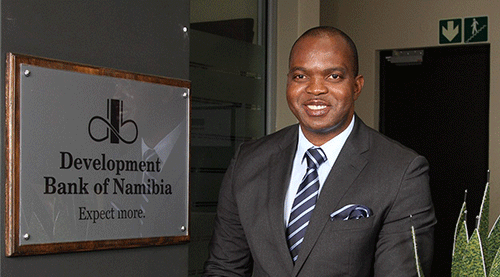It is worrisome that loans worth only over N$1 billion have been advanced for the past 17 years to applicants residing in the llKharas region. This concern was expressed by Development Bank of Namibia’s Executive: Marketing and Corporate Communications Jerome Mutumba while addressing entrepreneurs in Keetmanshoop last week.
He was speaking at an open session engagement explaining the DBN’s mandate, reasons for rejection as well as various financial assistance packages available to entrepreneurs at the bank.
“It should, however, also be mentioned that many loan applications are sometimes rejected due to mistakes entered on your respective business plans,” he explained.
Mutumba said unrealistic, inflated financial projections are some of the most common mistakes. “We are aware that some ‘advisers’ are encouraging you to present bankable business ideas that will apparently break even or make profits within the first few years, as a means to increase your prospects of getting awarded loans, whilst the reality is that such businesses must first grow before reaching any of those financial projections,” he noted.
The executive added that these unrealistic cash flow projections will result in lenders not being able to honour their repayment commitments with the DBN in the long run, having detrimental consequences in the end. Applicants should furthermore be vigilant in not purchasing assets for their businesses that are not productive or may yield profits, like expensive vehicles, as they will lose money in the long run. He also advised prospective applicants not to request funds for opening shebeens or gambling shops, to mention but a few, as the entity does not finance socially irresponsible businesses.
“Another challenge is that applicants are sometimes listed on credit bureaus (ITC), and I am therefore informing you that the DBN supports responsible lending and a culture of applicants paying their accounts in accordance with credit agreements made,” he continued. Mutumba said in some instances, the bank enforces as a requirement that entrepreneurs who received funding for government tenders can only be paid by the respective ministry or agency once the agreed repayment instalment has been paid directly from such government institutions to the DBN.
Speaking at the same occasion, the DBN’s Manager for Investments, Heroldine Carstens, explained that the bank offers four financial assistance models, namely Agriculture Enterprise Funding, Skills-Based Finance, Business Recovery Loans and the Credit Guarantee Scheme.
“In terms of agricultural funding, the DBN will provide secondary funding to existing projects for the purpose of expanding business activities like setting up milling plants, cold freezer facilities and meat-processing equipment,” she stated.
Carstens said the business recovery model deals more with financing those businesses negatively affected by Covid˗19, the economic recession, and drought. “These funds are meant for purposes of operational expenses, the expansion of respective businesses, increment of production volumes, and the purchasing of machinery and equipment,” said the investments manager.
The skills-based finance scheme is tailor-made for young professionals, graduates and artisans who completed their studies at institutions of higher learning and vocational training centres.
“The core objective of this initiative is that of creating employment and addressing skills shortages for such applicants,” she emphasised.
When elaborating on the credit guarantee scheme, Carstens said the idea is that the DBN wants to reduce collateral required
from commercial banks for new credit facilities, and in the process make it possible for prospective entrepreneurs to access such loans. “We have so far negotiated with two commercial banks, whereby the DBN will provide security for 60% of such mandatory collateral, whilst the borrower can now only provide the remaining 40%,” she confirmed.



